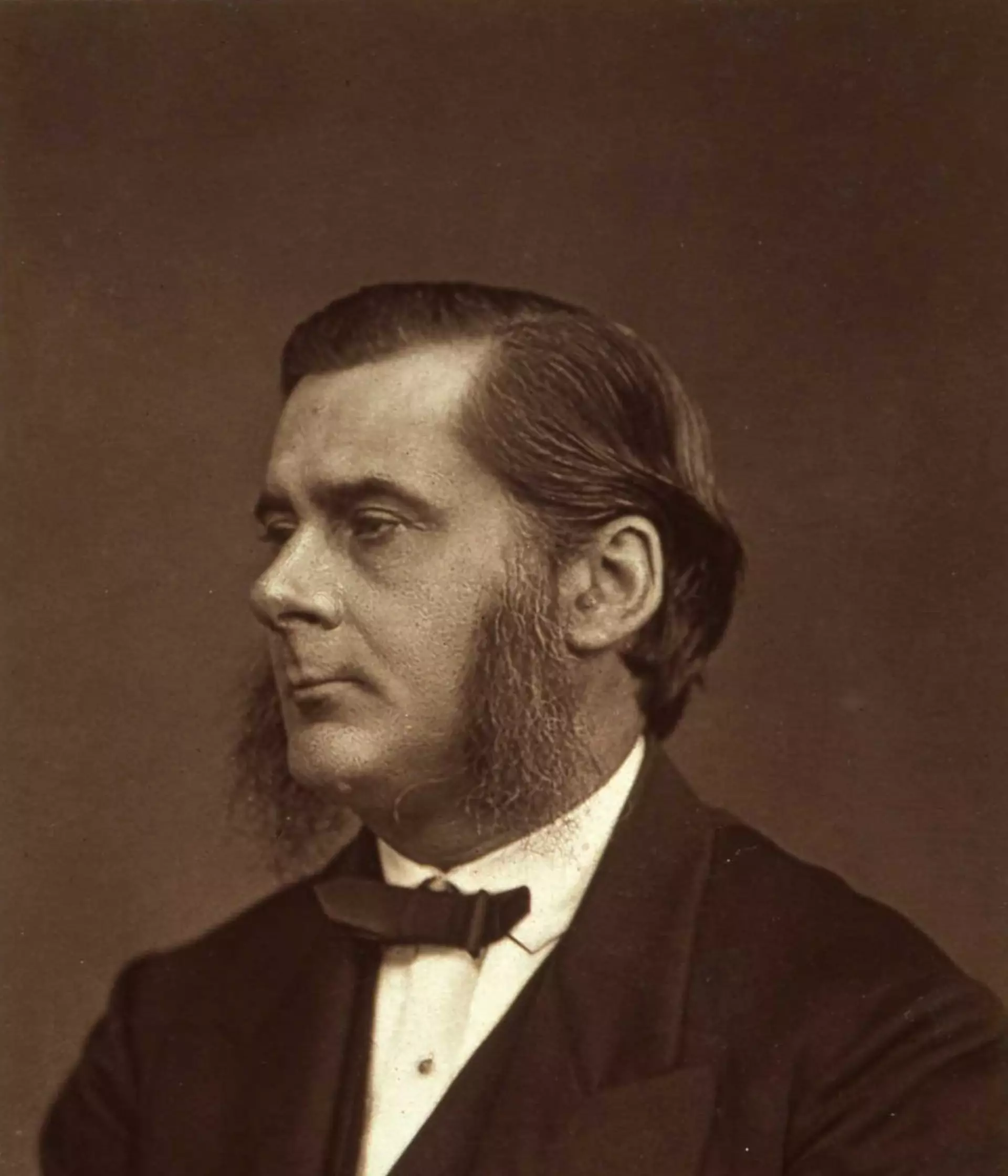
Emma Milnes
Deputy Librarian
This month, instead of looking at one particular artefact from ZSL Library’s collection, we wanted to look at the life of one of ZSL’s most prominent Fellows - Thomas Henry Huxley (1825-1895).
Thomas Henry Huxley was born in Ealing, 1825, to a struggling middle class family; his father was a teacher, but sadly the school he taught at closed whilst Huxley was still young. This loss of income put the family into considerable financial difficulty, resulting in Huxley only having two years of formal education; but being bright, and an avid reader, this difficult start in life did not deter him from pursuing a life of science.
Huxley's young ambition
For the most part the young Huxley educated himself, developing a fierce intellect which allowed him to gain medical apprenticeships, win scholarships, and gain enough of a reputation to join the Royal Navy.
Huxley dreamed of making a name for himself in the world of science by studying the natural history of exotic lands, as Charles Darwin had done so aboard the Beagle a few years previously, but science was not a lucrative career and, unlike Darwin, Huxley did not have the advantage of a wealthy family to support him.
If science was going to be his career, then he had to find a way to make it pay. Huxley's opportunity came in 1846 when he was appointed ‘surgeon’s mate’ to the HMS Rattlesnake, and set sail in December for Australia and New Guinea. During the voyage Huxley dedicated his time to the study of marine invertebrates, sending numerous papers back to England for review, hoping that they would make a name for him and enable him to climb the ladders of the scientific community.

Upon returning to England in 1850, Huxley discovered that his papers had been met with great success, and his scientific career gradually began to take off. Over the next 10 years he was elected to various prestigious societies, including becoming a Fellow of ZSL in 1860.
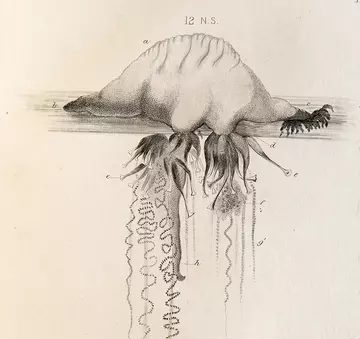
Huxley was keen to publish a book based on his studies aboard the Rattlesnake, but without a wealthy family or a patron to support him it was too expensive for him to finance himself. It wasn’t until 1859 that he was finally able to publish a book that summarized his findings from the Rattlesnake. ZSL Library proudly holds a first edition of the book in its collection: The oceanic Hydrozoa : a description of the Calycophoridae and Physophoridae observed during the voyage of H.M.S. Rattlesnake, in the years 1846-1850’ / with a general introduction by Thomas Henry Huxley. - London : printed for the Ray Society, 1859.

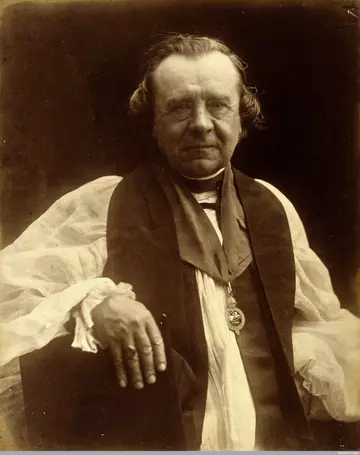
Where did the nickname 'Darwin’s Bulldog' come from?
It was around this time that Huxley first earned himself the nickname ‘Darwin’s Bulldog’. This reputation came about largely for two reasons: his defence of Darwin’s ground breaking book On the Origin of Species (published 1859); and a very public, and heated argument, with another of ZSL’s Fellows (and Vice President) the Bishop of Oxford, Samuel Wilberforce.
The two men famously came head to head at a meeting of the British Association on Saturday 30 June 1860 over Darwin’s theories of evolution, with Huxley passionately arguing in favour of the ideas whilst Wilberforce vehemently argued against them. The debate was widely reported in the news, portraying the two men as enemies, and making Huxley a household name (Wilberforce was already very well known for his public speaking). But what many people may not realise is that despite their differences the two men could also work peaceably together, and both in fact served on ZSL’s Council making important decisions about the future of the London Zoo and it’s day-to-day running.
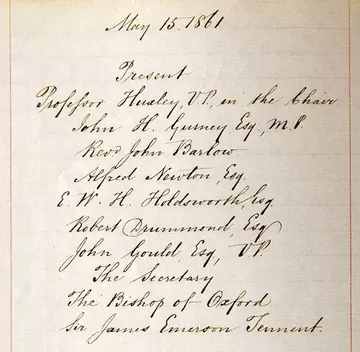
Thomas Henry Huxley’s legacy continued well after his death... Huxley went on to have a highly distinguished family which produced some impressive individuals - amongst his grandchildren are Aldous Huxley, the famous author; and Julian Huxley the famous evolutionary biologist, and Secretary of the Zoological Society of London during the Second World War.
ZSL still holds the memory of Thomas Henry Huxley in high esteem, which is why each year there is still a medal awarded in his name to a postgraduate research biologist attending university in the UK for original work submitted as a doctoral thesis. You can read more about the ZSL Awards here.
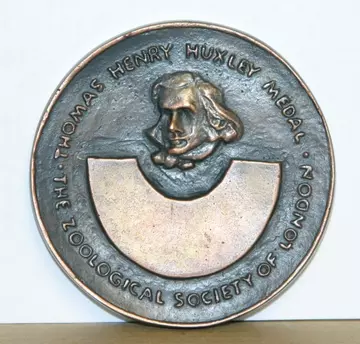
If you’d like to find out more about the work of Thomas Henry Huxley then a good place to start would be the The Huxley Reviews Collection, part of the Journal of Zoology. The Journal of Zoology is the current name of for ZSL’s scholarly publication which used to be called the Proceedings of the Zoological Society of London, where many of Huxley’s own papers were published.
Further reading
Huxley : evolution's high priest / Adrian Desmond. - London : Michael Joseph, 1997. - ACHU
Huxley : the Devil's disciple / Adrian Desmond. - London : Michael Joseph, 1994. - ACHU
